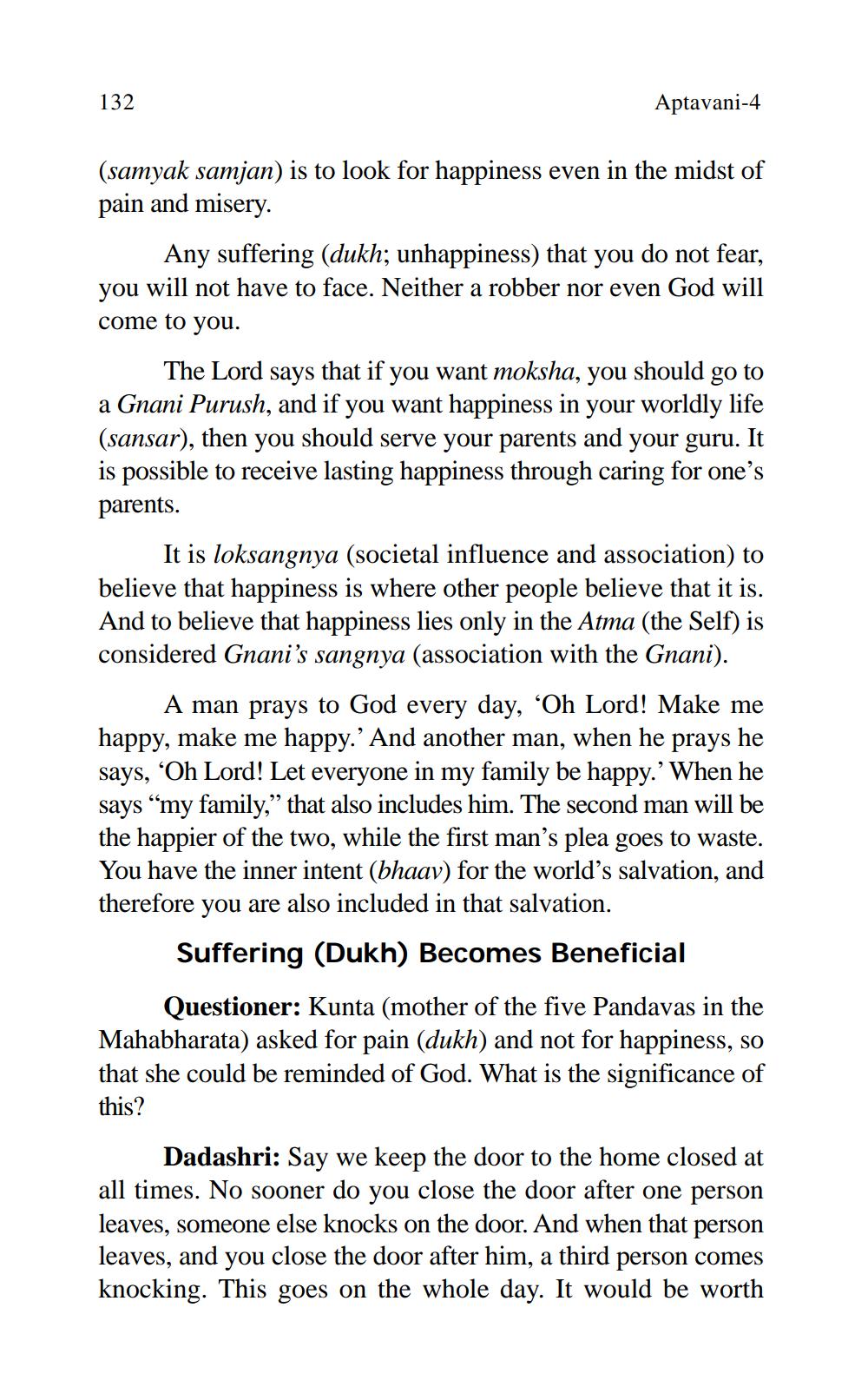________________
132
Aptavani-4
(samyak samjan) is to look for happiness even in the midst of pain and misery.
Any suffering (dukh; unhappiness) that you do not fear, you will not have to face. Neither a robber nor even God will come to you.
The Lord says that if you want moksha, you should go to a Gnani Purush, and if you want happiness in your worldly life (sansar), then you should serve your parents and your guru. It is possible to receive lasting happiness through caring for one's parents.
It is loksangnya (societal influence and association) to believe that happiness is where other people believe that it is. And to believe that happiness lies only in the Atma (the Self) is considered Gnani's sangnya (association with the Gnani).
A man prays to God every day, 'Oh Lord! Make me happy, make me happy.' And another man, when he prays he says, 'Oh Lord! Let everyone in my family be happy.' When he says “my family," that also includes him. The second man will be the happier of the two, while the first man's plea goes to waste. You have the inner intent (bhaav) for the world's salvation, and therefore you are also included in that salvation.
Suffering (Dukh) Becomes Beneficial
Questioner: Kunta (mother of the five Pandavas in the Mahabharata) asked for pain (dukh) and not for happiness, so that she could be reminded of God. What is the significance of this?
Dadashri: Say we keep the door to the home closed at all times. No sooner do you close the door after one person leaves, someone else knocks on the door. And when that person leaves, and you close the door after him, a third person comes knocking. This goes on the whole day. It would be worth




